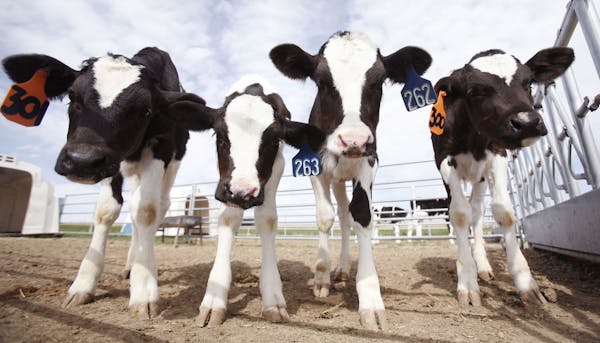The Catholic Church is male-dominated by institutional design. The conclave of cardinals that will elect a new "Holy Father" is all male. Only men vote for the leader, who appoints only men to vote for his successor. It doesn't take a women's studies major to see that by definition this is a self-perpetuating patriarchy.
The most fundamental prayer of Christianity is even more emphatic. While the College of Cardinals is only 1,000 years old, the fatherhood of God is as old as the Trinity — beyond the category of time. Christ taught us to pray that the eternal patriarchal rule of the father "be done on earth as it is in heaven."
Let's face it. This peace plan does not exactly accord with the feminist vision that only the rise of female leaders will save humankind from those testosterone-nourished twins, war and violence.
Christ commanded his apostles to love one another as he loved them and as his father loved him. He said "love" — and he was talking to an all-male group. For Catholics, this conclave really is about the Christian nature of love. It was the topic of the last pope's first encyclical: "Caritas" — charity, love.
The patriarchal fraternity of the priesthood puts itself forward as a "communion" of masculine-ordered love. The love of this brotherhood of fathers is called to be particularly protective toward that ancient biblical formulation of the needy, "widows and orphans." The fatherless have always been victimized, so a band of brothers pledge their loyalty to the father and their protective strength to the vulnerable. It is a mission that appeals to a manly heart.
The vow of celibacy — by men who are deeply and naturally drawn to women — is a pledge to forgo the sexual communion of marriage in favor of the sacral bonds of worship, building up the Body of Christ. This deep love, which replaces the need for offspring by overcoming death, bears much fruit in this life. Schools, hospitals and relief centers always complete the Catholic landscape — wherever our priests are free to first erect our churches.
Brotherhoods are blood oaths; priests drink the blood of the covenant. Eleven of the first apostles were martyred. Brotherhoods are circles around a feminine center that is cherished, and so the priest guards the tabernacle housing the sacred presence, and he loves Mary, who housed the presence first.
We Catholics cannot ask Protestants or atheists or feminists to affirm our understanding. No doubt our processions, statues, fasts, candles, sacraments, special seasons and ancient garments seem like practices the college-educated should have long ago outgrown. But to understand the conclave, it is imperative to think in Catholic categories, not about modern trends.
The cardinals will not be debating "gay marriage" or "female ordination" for these are not even issues. For practicing Catholics, these are oxymorons — contradictions and impossibilities.
What's at stake is, however, truly about sex and love, because the Catholic Church is a communion built on loves, starting with the trinitarian love of the father for the son. Sex differences are central to our covenants of loving. This is expressed in our sacramental order of an all-male priesthood and male-female marriage. These sexually bounded covenants form the lattice of our public and private bonds.
The conclave is being deliberately called at this time of an ever-deepening rift in the Catholic priesthood and episcopacy. The great taboo (the "filth" that Pope Benedict has said threatens the nature of the church from the inside) can only be discussed, in our terms, as a kind of incest. This is the issue — once unspoken and now exposed — that fractures our priestly fraternity and has rendered our public speech a stutter, a stammer and too often a lie.
It is not only pedophilia but also homosexuality that threatens the ordered love of fathers for adult sons and brothers for brothers. This contest has little to do with individual rights and everything to do with the public communal nature of masculine love.
There is no guarantee that the next pope will be able to wash clean the apostles as Christ did at the Last Supper. There is no guarantee that in this conclave the will of the father and the counsel of the Holy Spirit will be heeded. It is guaranteed that the Holy Spirit will be present. But it is just as sure (as on the night before Christ died, when "Satan had entered into Judas") that some in the conclave will be with the Old Deceiver.
There is much to observe for those with eyes to see and ears to hear. For Catholics, Oremus — let us pray.
--------------
David Pence is a Catholic physician and science teacher in Mankato. He is author of "Religion, Sex and Politics (For Men Only)."
Lab-grown beef is red meat for the conservative base


